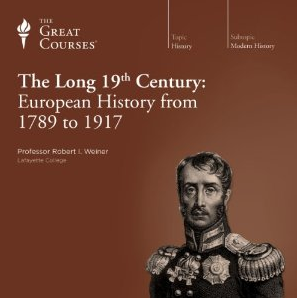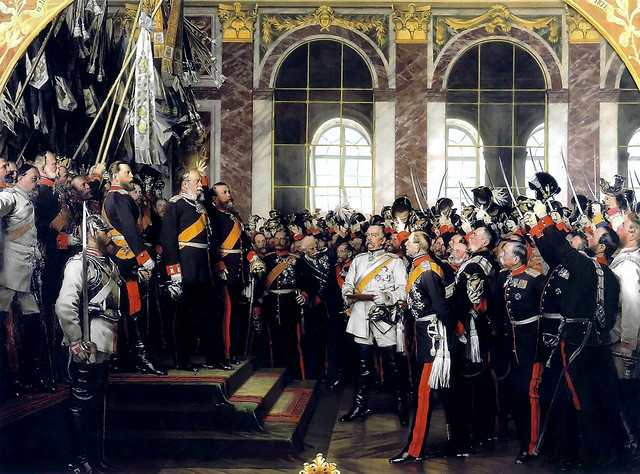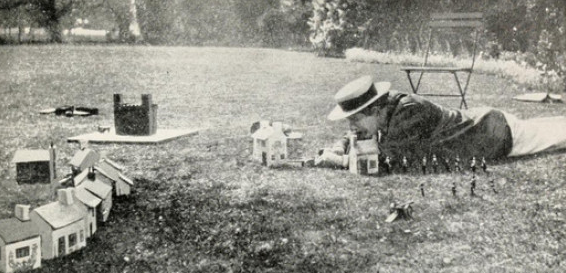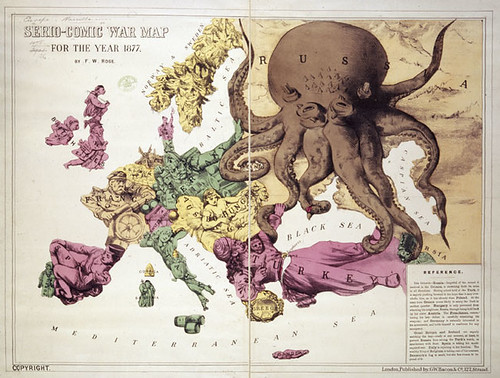 |
| A Funny Little source-book! |
There is something quite fascinating about the political, social and technological dichotomy of this period - the 19th century - as perhaps more than any other century the pace of modernity and the juxtaposition of the old and the new was acute and jarring. The great industrial revolution of the previous century had catapulted Europe into a new golden age of invention the like of which had never been seen before, but unlike previous ages of innovation the effects of this new 'modern' age were felt all the way down and more largely to the lowliest citizen.
In the past change had - on the whole - been slow and gradual and where the difference between one century and the next in terms of technological and scientific progress was bearly perceptible. The 18th and 19th centuries, on the other hand, saw an unprecedented acceleration in discovery where social, cultural and political attitudes were struggling to keep pace with innovation and implications of the new mechanisation.
Perhaps nowhere else was the clash of tradition and the modern so apparently at odds than in the military.
The 19th century could be seen as the transition between the grand old Regency world and the modern. Conservative attitudes appeared still firmly Napoleonic while innovations sought to pull military philosophy into the 20th century.
This is the backdrop to the world of Funny Little Wars, the miniature battlefield where regiments still largely appeared dressed as they might have at Waterloo but where also the weapons technology was very much a sinister precursor to the Great War of 1914 (the disastrous watershed that was the final nail in the coffin of the Edwardian Period).
All this leads me (finally) to this month FLW related reading matter - or rather, as usual in my case, 'listening matter' as it is an audio book.
To begin with this isn't a book at all (audiobook differentiations aside) but rather this is a series of academic lecture. This audio-lecture (then) is a part of a series of 'books' which come under the title 'The Great Courses'. A scholarly collection of lectures on history intended for college/university level students and amateur historians, and as such they might be just a wee bit dry if you are used to the rather more mainstream 'populist' history works.
This is very much like attending a college lecture and it's all very matter of fact, but as this is a subject that doesn't get a lot of airing - as most historians tend to be either interested in the Napoleonic preamble to this period or the culmination of The Great War - treatise of the 19th Century as a whole are a little thin on the ground.
 |
| Anton von Werner's depiction of Wilhelm's proclamation as Emperor in the Hall of Mirrors in Versailles; Bismarck is in the centre-right wearing white. While it's easy to type-cast the Germans as the quintessential 'baddies' of the 19th Century in truth practically every major nation played their version of 'The Great Game'. [Picture source: Wikipedia] |
I know that there are spots of military history which belong to this period that do have ample coverage by historians, The Crimean War (1853-56) The Franco-Prussian War (1870-71) and The Boer Wars (1880 to 1881 and 1889 to 1902) are popular subjects but otherwise historians tend to treat the century as the waiting room for the First World War! That's my personal opinion - but it's my experience that historians don't seem to be very interested in peacetime armies.
Anyway, so Professor Weiner's (yes, I know) collection of papers on the subject of the 19th Century is quite enlightening and good background material with which you can better understand the context of H. G. Wells's FLW hobby. You will be introduced to historical characters like Otto von Bismarck, and Kaiser Wilhelm II, the archetypal 'baddies' which so influence Funny Little Wars an it's scenarios and you will get a sense of the sort of political and diplomatic intrigue that influenced Anthony Hopes 'The Prisoner of Zenda'!
I can't exactly describe this 'book' as entertaining, but as a reference sourcebook for FLW 'plotting' it is very informative and useful. Here are just some of the titles of the lectures included in this work:
• The Napoleonic Era, 1799–1815
• The First Industrial Revolution, 1760–1850
• The Crimean War, 1853–1856
• Age of Bismarck—Creating the German Empire
• The Third Republic—France, 1870–1914
• Russia, Turkey, and the Balkans
• The “New” Imperialism European imperialism from the 1880s until about 1905
Link to the volume in the Audible Library: The Long 19th Century: European History from 1789 to 1917
Written by: The Great Courses
Narrated by: Professor Robert I. Weiner
Length: 18 hrs and 28 mins
Series: The Great Courses: Modern History


No comments:
Post a Comment